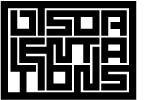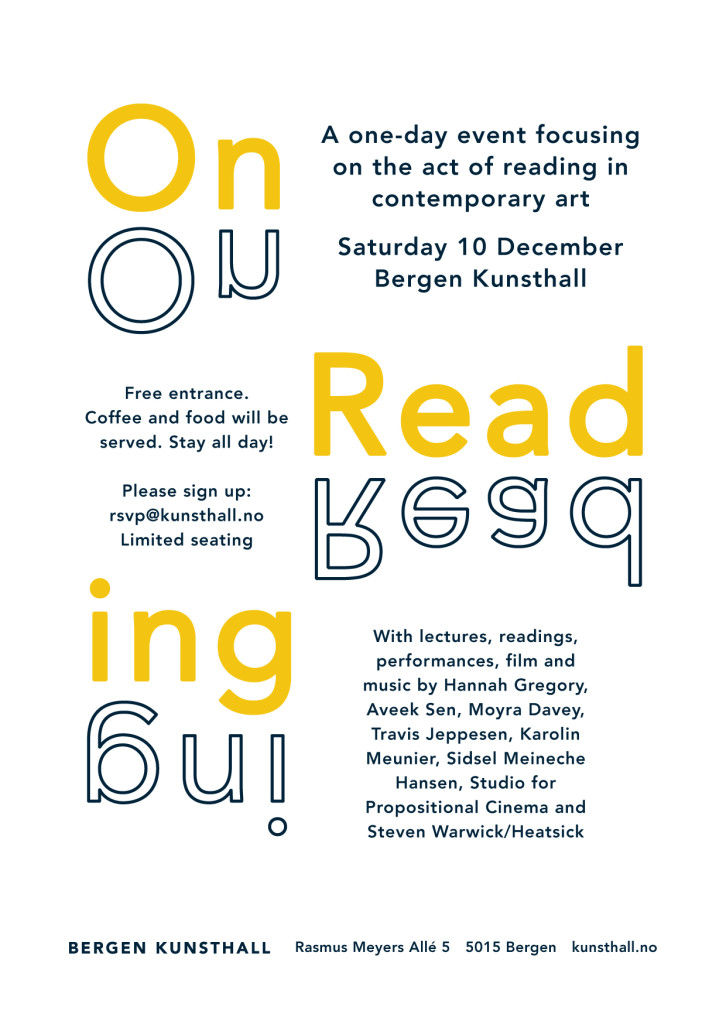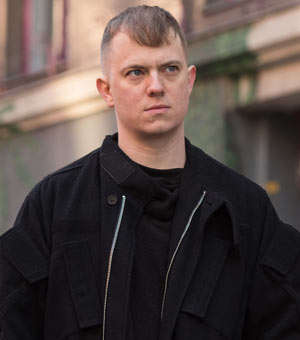On Reading: December 10 in Bergen, Norway
by Travis Jeppesen on November 19, 2016
A live reading/performance from 16 Sculptures as part of “On Reading,” an all-day event at the Bergen Kunsthall.
7pm
Saturday 10 December
Bergen Kunsthall
ON READING
A one-day event focusing on the practice of reading in contemporary art.
With lectures, readings, performances, film and music by Hannah Gregory, Aveek Sen, Moyra Davey, Travis Jeppesen, Karolin Meunier, Sidsel Meineche Hansen, Studio for Propositional Cinema and Steven Warwick/Heatsick. Presented by Bergen Kunsthall in collaboration with NOVEL.
Free entrance. Coffee and food will be served. Stay all day!
Please sign up at rsvp@kunsthall.no
Limited seating.
–
Taking Moyra Davey’s exhibition in Bergen Kunsthall as its inspiration, “On Reading” brings together a group of artists, writers and performers to explore reading as a distinct and singular practice within contemporary art.
“Hemlock Forest” is the first exhibition in Scandinavia by the New York based, Canadian artist, Moyra Davey. Much of Davey’s work centers on the everyday of her own life — as a photographer and filmmaker, and as an avid reader and writer. Initially working in photography, in recent years she has developed a series of essay films that layer personal narratives onto highly engaged explorations of particular authors, artists and texts.
Within Davey’s work – in both its visual and inscribed forms – the act of reading, and a self reflexive writing practice, hold a prominent role.
Despite her use of quotation and citation, Davey’s work is as much a meditation on her own artistic processes as it is on those of others; an exploration of the irrepressible drive to create and make; and that strange symbiotic dichotomy between a life lived and a life written down or recorded. In Davey’s work, reading so often seems to be the central locus through which this reflection takes place.
The public program “On Reading” will bring together artists, writers and scholars who share with Davey, not only an interest in literature and writing, but also an acute awareness for reading as a ‘practice’ within both literature and contemporary visual art, and for reading as a core artistic mode.
ABOUT THE PARTICIPANTS
Hannah Gregory
As well as the productive aspects of reading in itself, reading is a way of passing time, forgetting time; something done while waiting, a precursor to doing. Hannah Gregory will consider Lauren Berlant’s notion of ‘impasse’ – “a state of animated suspension”, “a poetic of immanent [and imminent] world making”, in relation to reading, and to Moyra Davey’s work – in particular within the feminised realm of the home. Taking texts as “temporary shelters”, I will think about how reading as a fortifying mode of thought occupies the time before both creative work and real-world actions.
Hannah Gregory is a writer and editor living in Berlin. Her writing on contemporary culture has appeared in Art Monthly, The New Inquiry, frieze and The Wire, among other publications. She is a co-editor of the art writing journal Aorist and keeps a TinyLetter ‘Thresholds’.
Aveek Sen and Moyra Davey
Aveek Sen and Moyra Davey will engage in a conversation about Reading, which will take place via Skype. Davey will be speaking from her apartment in New York with Sen at his home in Calcutta. When working on his essay for the forthcoming publication on Moyra davey’s exhibition at the Kunsthall, Sen and Davey had several such skype conversations across the continents. For this conversation we are able to ‘wire-tap’ into their correspondence from Bergen, and listen in on their exchanges.
In his essay “Low-hanging Fruit” Sen reflects both on Moyra Davey’s act of reading within her films, as well as his own attempt of ‘reading’ Davey’s work through his own writing: “What if, caught within my repeated viewing of the films, I end up rehearsing their words and action, copying into my notes what the film-maker reads out incessantly? She reads, she makes notes, she writes, she films what she reads and writes, makes films in which she reads out what she writes; I write in my notes what she reads out about what she has read, I read up what she has read. What if I am trapped in this cycle, this infinite regress, of reading, writing, filming and making notes?”
A curator and writer on art, literature, music and society, Aveek Sen is also a Senior Assistant Editor, The Telegraph, Kolkata. Sen’s curatorial practice has a focus on photography. He has lectured in English at St Hilda’s College, Oxford, and is the recipient of a number of awards including the Infinity Award for Writing on Photography (2009); The Reuters Fellowship, Green College, Oxford (2005); and the Rhodes Scholarship, Rhodes
Travis Jeppesen
In addition to his work as a novelist, art critic and poet, Travis Jeppesen has developed what he terms “object-oriented writing”—writing that seeks to use language as a site for a subjective, embodied encounter with and response to art objects. Jeppesen’s writing treats objects themselves as inhabitable, in an attempt to write from within the object; this approach intends to counter distanced forms of critical analysis to which art is usually subjected. As he has written: “Objects have no feelings… but could they?”
In his installation 16 Sculptures, visitors—sitting while blindfolded—listen to recordings of Jeppesen reading his object-oriented re-creations of sculptures. Depriving us of our usual faculties for experiencing works of art—sight and visual-spatial reasoning—Jeppesen’s texts instead stage an encounter with objects through language that nonetheless retains the texture of embodied, physical experience, an imaginative realm in which he attempts to summon the autonomous essences and interior lives of objects themselves.
For the event in Bergen, Jeppesen will introduce and present excerpts from 16 Sculptures as a reading/performance.
Karolin Meunier
In Texte zur Kunst’s recent themed issue “Poetry”, Karolin Meunier contributes with the essay “Hearing Voices – On the Reading and Performance of Poetry”. Reading in relation to writing, and the state of “being read” is a perspective that highlights the significance that various modes of sharing might have on the act of authorship itself. In her analysis of this phenomenon, Karolin Meunier takes Berlin-based writer Haytham El-Wardany’s book “How to Disappear” as a key example. In its consideration of reading silently versus reading aloud, she argues, it destabilizes both the boundaries of the self and the idea of possession itself – including, not least, the subject’s possession of his or her own voice.
Karolin Meunier is an artist and writer based in Berlin. She teaches at the Academy of Fine Arts in Munich.
Sidsel Meineche Hansen
The CGI animation Seroquel® considers the concept of self-destruction and increasing prescriptions of anti-depressants, as an industrial complex “that allows capitalism to enter into our relationship to ourselves.” The film features the avatar Eva 3.0 (the main protagonist in Sidsel Meineche Hansen’s recent work and the object of her research into virtual/post-human sex) dubbed by a ‘metalogue’ performed by empowerment speaker and post punk legend Lydia Lunch.
Sidsel Meineche Hansen is an artist based in London. Her work takes the form of woodcut prints, sculptures, CGI and VR animations which typically foreground the body’s industrial complex in the pharmaceutical, porn and tech-industries. Her work also manifest as publications, and as an ongoing series of seminars. In 2015 she co-edited Politics of Study (London and Odense: Open Editions and Funen Art Academy). Currently she is a visiting scholar at CalArts and works as an associate professor at the Funen Art Academy, Denmark.
Studio for Propositional Cinema
Studio for Propositional Cinema was founded in 2013 with a public call to action. Through language, actions, sounds and images, through production, publication, exhibition and fictions, they seek to reconfigure culture from a network of ideological formations into a dialogue of hypothetical gestures.
Cut With Some Pieces of Cinematography: A Sonata for Two Women (2016) is a play by Studio for Propositional Cinema which incorporates many of their prior texts and performances into a narrative dialogue between two actors and the audience. The two actors shift between collectivized stand-ins and subjectivized humans, recalling characters from sources as varied at Ingmar Berman, Elena Ferrante, Pier Paolo Pasolini and Smog.
Heatsick
The Berlin based visual artist and producer will play a kaleidoscopic DJ set of stripped down club edits and frenetic hi energy to pulse the dance floor. Steven Warwick’s multidisciplinary work invites the interaction of objects and media within an immersive environment. In his dance music project Heatsick, he sends a solitary Casio through a myriad of effects, looping up coarse, crisp, and twinkling out-house music into wonderfully queasy eternity. He teases out melodic and rhythmic mantras to an off-kilter, Burroughsian effect that wins on the floor and never forgets to be lo-fi fun(k).
NOVEL
NOVEL is an editorial and curatorial project, publishing artists writing and texts that oscillate between modes of fiction and poetry. NOVEL acts in-between the potential performance of a script, and the indeterminate transcript of the event. The journal hosts a cacophony of voices that coalesce around writing as a core material for a number of artists exploring language and the speculative force of fiction.
For the Upstairs residency, NOVEL (Alun Rowlands and Matt Williams) will host events, readings, screenings and the dispersion of a new publication. Curated with artworks that become the locus for reading and the fictioning of a scenario, NOVEL asks us to think of writing as something distinct from information, as at least one realm of cultural production that is exempt from the encompassing obligation to communicate.
–
ON READING is presented by Bergen Kunsthall’s lecture series Platform, in collaboration with NOVEL (Alun Rowlands and Matt Willams). It has been organised on the occasion of the solo exhibition ‘Henlock Forest’ by Moyra Davey, at Bergen Kunsthall.
Supported by Fritt Ord
—



Leave your comment